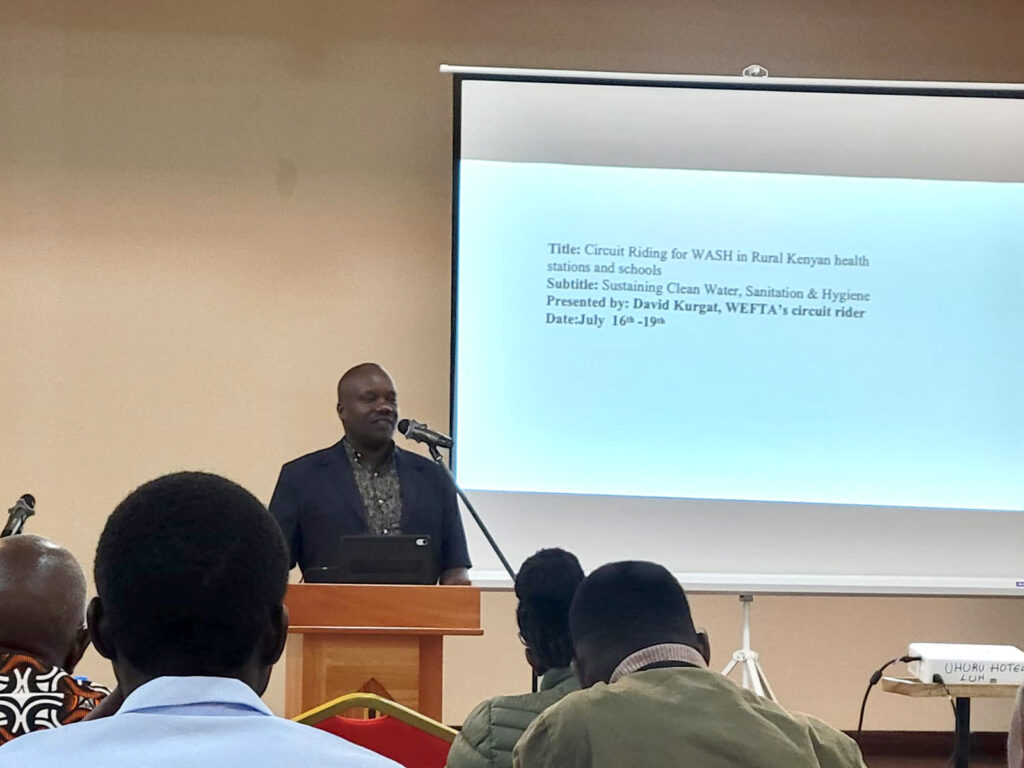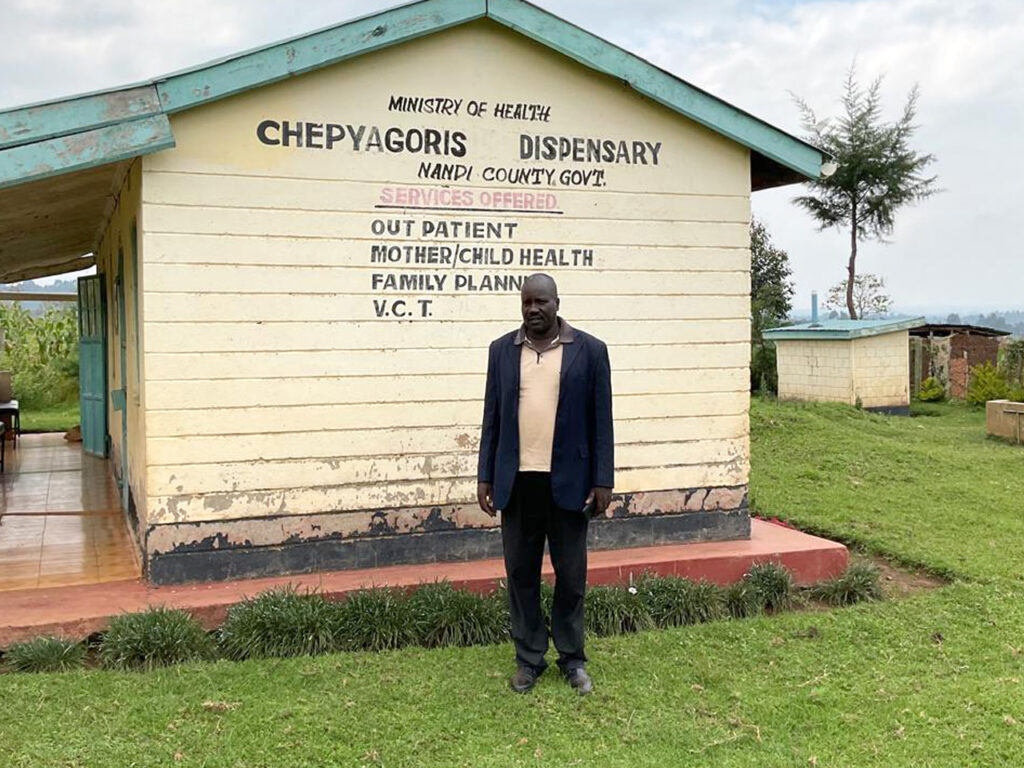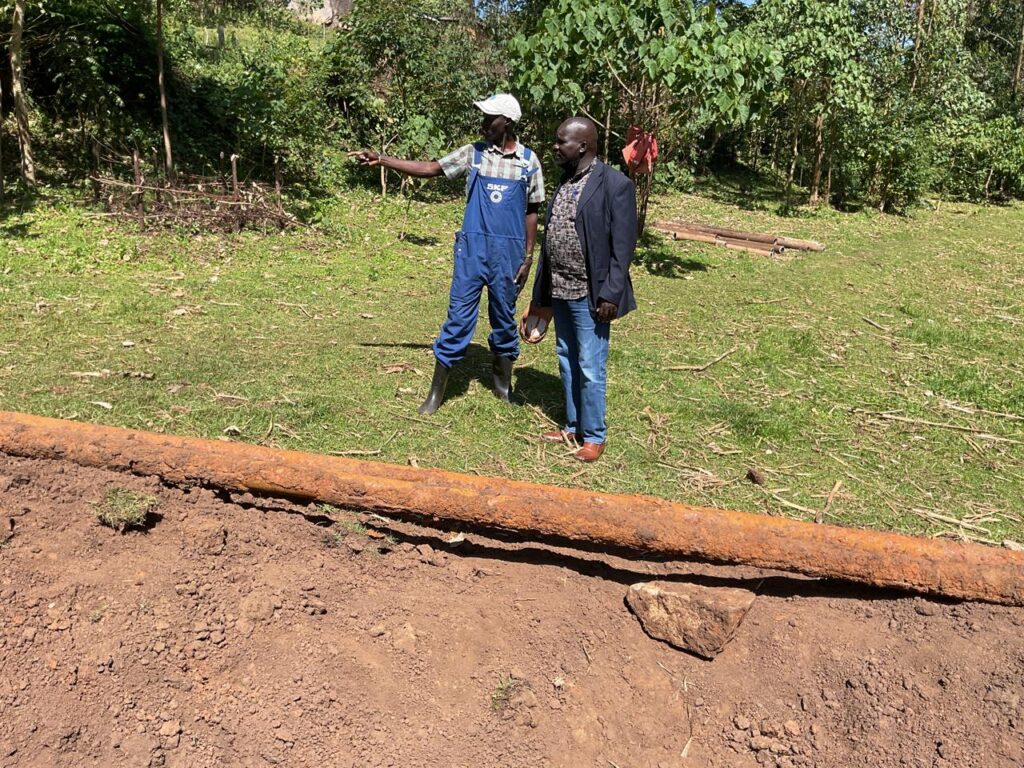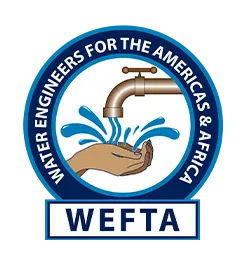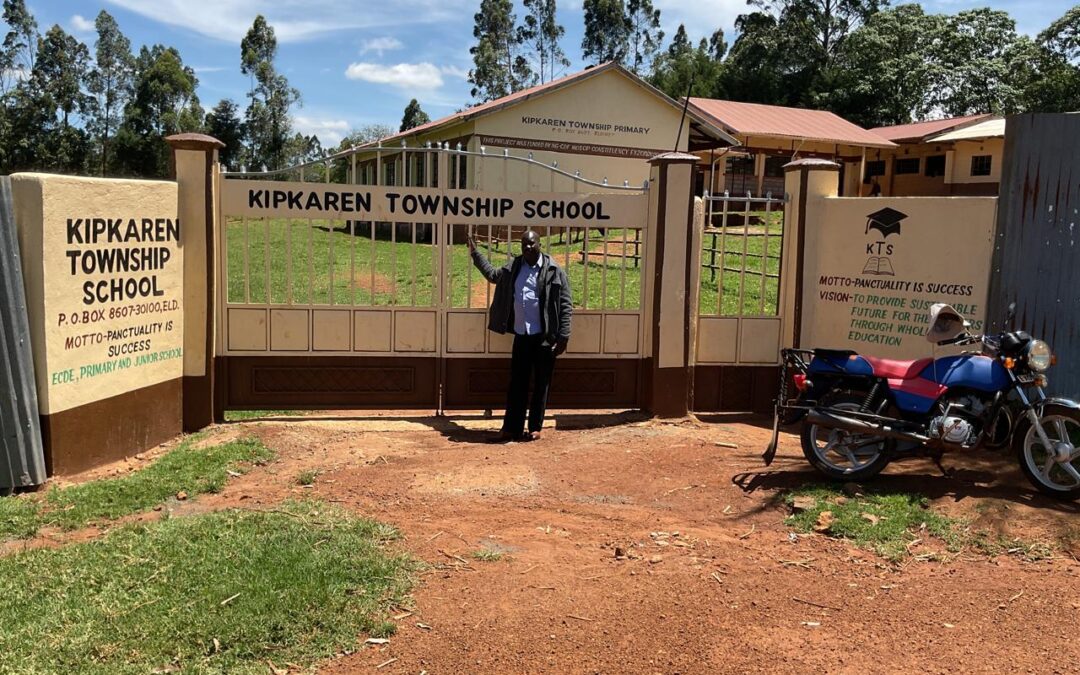Circuit rider and Kenyan David Kurgat plays a key role in advancing safe water, sanitation, and hygiene services (WASH) in Kenya’s Rift Valley. David is an indispensable “person in the field,” a recurring visitor to Rift Valley sites who is the eyes, ears, and hands of WEFTA. His duties include monitoring schools, health centers, and villages under his care. During regular site visits, David documents the functionality of infrastructure, maintenance needs, and project status. Additionally, a significant portion of his time is spent training on-site personnel. In a word, David is invaluable to sustaining WEFTA operations in the Rift Valley of Kenya.
The Complex Itinerary of a Circuit Rider
A circuit rider’s schedule is driven by urgent repair needs, planned preventative maintenance, meetings with stakeholders, and local travel conditions and logistics. David engages regularly with government ministries to align WEFTA’s interventions with county government standards. He meets with school management committees and health facility boards to review repair plans and discuss potential improvements. He also helps develop budgets using quotes from local contractors, input from community representatives, and WEFTA funding. Photographing critical components, such as wells, storage tanks, and piping networks goes a long way toward documenting their condition and supporting budget proposals.
Through frequent Zoom calls, emails, and messaging platforms, David maintains close communication and collaboration with the WEFTA team, sharing updates and clarifying expectations.
Obstacles to WASH Improvements in Kenya’s Rift Valley
When asked about the major challenges to securing safe water, sanitation, and hygiene in Rift Valley communities, David notes that most sites in the area lack sufficient technically trained personnel. He stresses the importance of empowering local actors with skills in basic repairs and cleaning protocols. To build technical capacity, David dedicates approximately 60 percent of his time in the field to hands-on training of community technicians, facility caretakers, and school maintenance staff.
Poor sanitation infrastructure is another significant challenge, as aging or improperly constructed latrines compromise hygiene and privacy. Additionally, poverty limits community contributions toward repairs and spare parts. Cultural norms sometimes discourage consistent hand washing or proper waste disposal. Finally, supply-chain issues inhibit sourcing replacement parts and treatment chemicals.
Infection Control in Rift Valley Healthcare Facilities
Controlling the spread of infectious diseases in healthcare facilities in the Rift Valley is a major public health concern. David notes challenges in this area include inconsistent water availability, outdated or insufficient latrine blocks, limited hand washing stations, and a shortage of trained cleaning staff. Resolving these issues is essential to reducing healthcare-associated infections and maintaining community trust in public health services.
Keeping Rift Valley Schools Safe for Students and Staff
Two interrelated deficiencies dominate WASH-related problems faced by schools in the Rift Valley. The first is insufficient water supply, such as nonfunctional pumps or no on-site water storage. In these cases, pupils may be burdened with the task of fetching water in jerry cans, often using donkeys, to meet daily needs. The second is inadequate hand washing and sanitation facilities. David notes that existing latrine blocks frequently fall short of the national pupil-to-toilet ratio, and that hand washing stations may lack soap and proper drainage. Under these conditions, disease risk heightens and contributes to absenteeism, especially among girls during menstruation.
WASH Successes in the Rift Valley
Given the multiple challenges David encounters in his work as a circuit rider, it is reassuring to know he can point to many WASH successes in the Rift Valley. “I’ve seen reductions in waterborne diseases and healthcare-associated infections following upgrades. Reliable water enables school feeding programs, improving child nutrition. And when behavioral change emerges, hand washing stations and hygiene education curb germ transmission in schools. Overall, safe water access saves time, allowing more focus on education and livelihoods.”
Transforming Lives through Clean Water, Sanitation, and Hygiene
While David recognizes that his work directly benefits thousands of community members, he stresses the need for ongoing investment in training and capacity-building for local stakeholders to ensure a sustained impact. In his words, “Equipping beneficiaries with the skills and resources to manage and maintain their systems will ensure long‑term water security, improved health outcomes, and stronger community ownership.” That observation is very much in line with WEFTA’s philosophy, and we thank David for his ongoing, critical role in advancing WASH services in the Rift Valley of Kenya.
